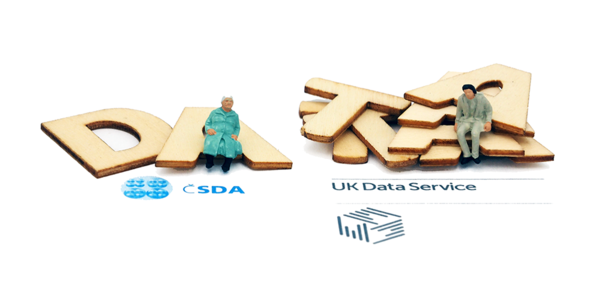Table of Contents
Data repositories as data resources
In chapter 6, we presented several types of data publishing routes and types of data repositories. Similarly, when you want to discover research data you will find that they are hosted at different types of data repositories.
Data resources for researching wellbeing: a case study
Bram Vanhoutte is a Research Fellow in Sociology at the Cathie Marsh Institute for Social Research (CMI), The University of Manchester. Bram was appointed as a UK Data Service Data Impact Fellow for 2016-2018 and his research focuses on wellbeing in later life. In the Questions and Answers below, Bram introduces his research and the data he has discovered and uses for his research.
Important social science data archives
Social science data archives belong to the category of (trusted) domain repositories. They are important resources for discovering social science datasets (Gregory, et al., 2018a). It is the mission of such repositories to embed data into the research lifecycle in such a way that data are published, shared, discovered and reused. Trusted domain repositories, such as the CESSDA Archives, design their data infrastructures to follow the FAIR (Findable, Accessible, Interoperable and Reusable) data principles (see chapter 1). Moreover, they:
- archive and preserve data;
- offer and manage (mostly online) access to the data;
- provide complex services focused on data reuse for research, teaching and learning;
- check data quality and compliance;
- improve data interoperability, e.g. by accompanying data with rich standardised metadata;
- maintain (mostly online) data catalogues;
- seek to add new data to their collections;
- develop training for data producers and data users.
Important (trusted) domain repositories are:
European diversity
Data archives for social sciences differ considerably between European countries. Below you find an example of a ”small” archive (CSDA) and a ”large” archive (UKDS).
| CSDA |
UKDS |
| The Czech Social Science Data Archive (CSDA, n.d.) was founded in 1998 as a department of the Institute of Sociology in Prague. The majority of the CSDA collection consists of data from sociological surveys. The data collection is gradually growing (in 2025, over 1 150 data sets are available) and expanding beyond the frontiers of sociology. With a few exceptions, research data cover only the area of Czechia. Only a small part (less than 10%) of the data collection is in English. |
UK Data Service (n.d.d) provides access to the UK’s largest collection of social, economic and population data. UKDS also supports users with training and guidance. The data collection includes major UK and cross-national surveys, including many government sponsored surveys and longitudinal studies and several cohort studies following individuals born in 1958, 1970 and 2000. There is data from the UK Census from 1971 to 2011 and qualitative data collections containing in-depth interview transcripts, diaries, anthropological field notes, etc. The UK Data Service has an online repository called Reshare (UK Data Service, n.d.e) for researchers to archive, publish and share research data. Reshare is an important tool in helping researchers to comply with the data archiving requirements from the UK’s Economic and Social Research Council. |
Expert selections of data resources
Below, CESSDA experts highlight key data resources for several research topics and show you how to access the data. Maybe you can find something for your research interests.







